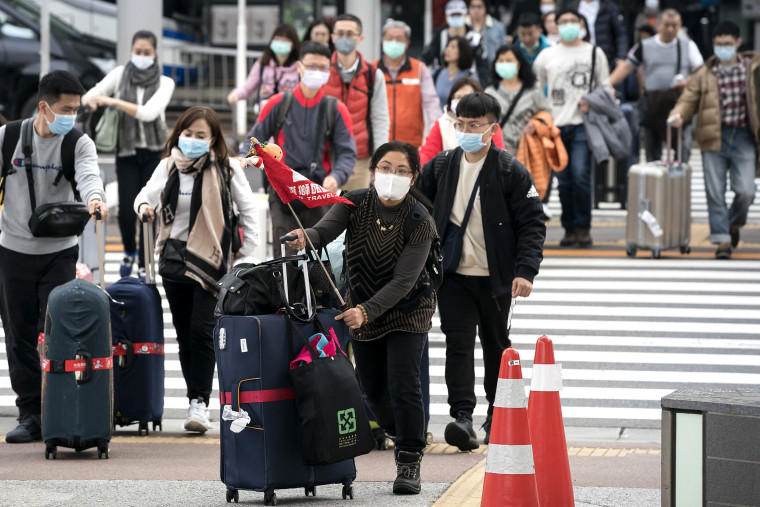A big question on the minds of investors this week was if — or when — the new Wuhan coronavirus, which has sickened more than 900 people and proven fatal to 26, could become contagious enough to infect markets.
“It just depends on the severity and the disruption that it causes,” said Rick Kahler, president of Kahler Financial Group. “The local markets, especially in China, are going to be first responders.”
As of Friday, the Chinese government had expanded its travel ban, with a total of some 35 million people unable to leave by air or rail. As a result, analysts predicted that sectors such as travel and leisure, as well as energy and retail, could experience greater pain, while healthcare — including medical supplies and vaccine manufacturers — could benefit from the crisis.
“It has pushed yields down and you had some downward pressure, particularly on emerging market equities,” said Darrell Cronk, president of the Wells Fargo Investment Institute. “It is probably going to put some downward pressure on the Chinese economy in the near term.”
Both the breadth and depth of any market impact depend on how severe and how fast-moving the disease turns out to be. “Duration matters a lot. If this is a couple of weeks, it’s no big deal, but if it extends into months, this will definitely have an impact on GDP,” said Jamie Cox, managing partner at Harris Financial Group. “As time goes on, the treatment of this should give us some understanding of how long this is going to last. That’s really the piece of this I’m most interested to see play out.”
Market observers said there were both parallels to and limitations when comparing the current Wuhan virus with Severe Acute Respiratory Syndrome. The SARS crisis of late 2002 and 2003, during which nearly 800 people in 17 countries died in an outbreak of another previously unknown respiratory illness that originated in southern China, gives investors some precedent, albeit with limits.
“In 2003 we were just breaking out of a pretty harsh recession,” Cronk said. “It’s hard to unbundle those two.”
He added that the scope of the outbreak is not yet at epidemic levels that characterized SARS as well as past outbreaks of diseases like swine flu, bird flu and Ebola.
“It hasn’t risen to that point yet. To the extent that it can be contained, markets will be fine with it,” Cronk said.
A spread from regional to global, though, would be another story. “Where the markets might start to react more is if you were to start to see the coronavirus spread, particularly to the U.S.,” Cronk said. “Then I think the markets may get a little more concerned about that.”
The increased interconnectedness of today’s economy means that any volatility could spread globally, Cox said. “Asia is such a big part of the world economy, I think it would affect everybody.”
A 2004 analysis determined that the SARS crisis cost the world economy a total of about $40 billion. The economic fallout, the authors wrote, “go beyond the direct damages incurred in the affected sectors of disease-inflicted countries.” A global economy facilitated the spread of the economic impact via travel, trade and financial networks, with both direct and knock-on effects.
The researchers said any recurrences would have driven that figure higher as markets priced in a fear factor premium. “The higher costs from a persistent shock relate to the loss of investment and the impact on confidence and therefore spending,” they said.
Governmental and NGO responses are likely to be another potent signal for investors, with pronouncements from the World Health Organization or the Centers for Disease Control and Prevention in the U.S. likely to have market-moving potential — for better or worse.
Another unknown is the response of the Chinese government, which has in the past downplayed or dismissed public health crises. “If the Chinese are being forthcoming, this is probably as bad as it gets,” Cox said. “The risk is that maybe this is worse than people are letting on.”
